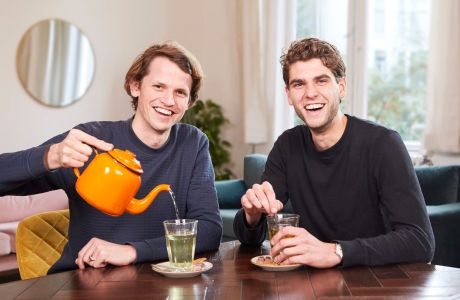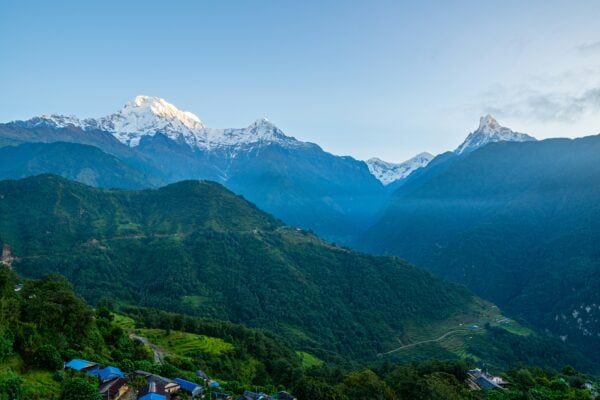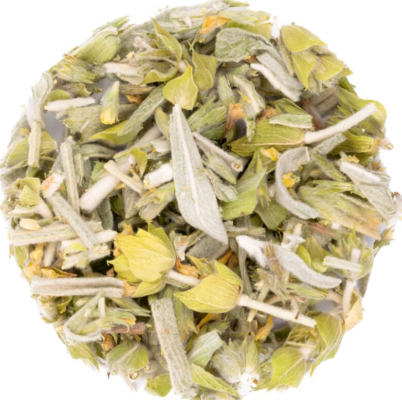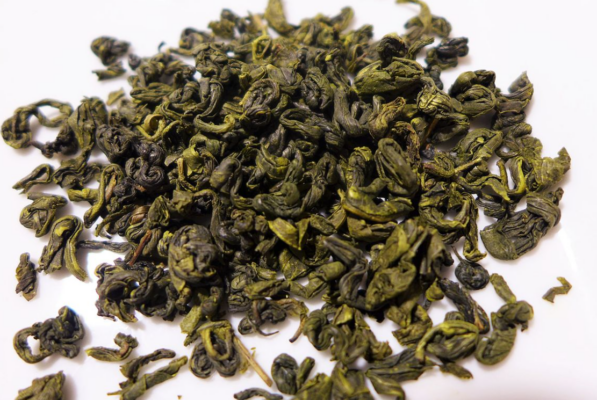Drinking herbal tea whilst doing some good for the environment in the Netherlands, who wouldn’t want to do that? Well, it just so happens to be the business model of Ptthee, a company founded by Matthijs Westerwoudt (30) and Daan van Diepen (27). Stories About Tea sat down with Matthijs to talk about farmers, bees, biodiversity and landscape restoration.
“Years ago Daan and I quit our jobs. We were inspired by Common Land – where Daan worked – that finds business models for landscape restoration. We talked a lot with farmers and discovered that there is a substantial lack in biodiversity in the Netherlands. Since the 1700s about 40 percent of all biodiversity has been preserved in Europe. However that number drops to just 15 percent in the Netherlands.”
“We have an efficient agricultural system and export but this also results in a monoculture and low levels of biodiversity. De past few centuries we’ve seen a decline in insects, many endangered species of bees, and the butterflies are struggling as well. Because only one type of crop is farmed in large areas bees can barely find anything to eat.”

“Daan and I were searching for a regenerative revenue model, on e that wouldn’t exhaust the earth. More flowers and herbs like Chamomile, Plantago and Dandelion are the solution to more biodiversity. We collaborated with the Wij.Land foundation and through them came into contact with farmers. Eventually we ended up with a farmer who plucked his own herbs and made tea with it. That’s when the penny dropped: Tea can be a revenue model and herbal tea is in high demand.”
“How do we work at Ptthee? Farmers sow our herbal mix, which we pay for, in rows on the edges of their land. The time to harvest is from May to mid-August, and at the end everyone shares in the so-called ‘biodiversity dividend’ or farmers receive discounts on seeds for herbs. An added benefit is that after the harvest farmers can let their cattle graze on these rows. Cows love the herbs and also adopt a more diverse diet by eating them, which in turn means they’ll require fewer antibiotics. On one of the farms the cows even broke through the fence to reach the herbs. They really like it! We are now challenging farmers to grow multiple rows of the same herb. This will benefit the biodiversity and farmers then receive a price per kg.”
“Currently we are working with nine farmers in the Veenweide-area between Utrecht and Amsterdam and we are receiving so many requests from all over the country that we had to set up a waiting list. This years gross revenue is 60.000 euro, which almost allows us to make ends meet. We also won the ASN Bank world prize which gives us more financial breathing room.”
“Our goal for 2020 is to make a mobile thee factory, that will be placed at farms during harvest times. At the moment we only sell Ptthee in the Netherlands but the plan is to collaborate with farmers in different countries to market local herbs for thee.”
“All Western nations have problems with biodiversity and through this initiative we want to stimulate farmers to allow more flowers and herbs on their land. Farmers used to perceive Plantago and Dandelion as weeds, but now they see it as a way to make money. Moreover, the farmers tell us that they really enjoy seeing bees and butterflies back on their lands.”




1 thought on “Ptthee: Drinking herbal tea and help biodiversity”
I haven’t read the entire article as yet – but quickly what herbs are involved – what health benefits of the tea – as an incentive – how to order from Australia. thanks
Divina